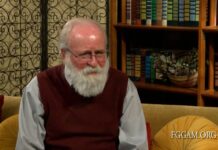 “On the 12th Day of Christmas…”In 567 AD, the Council of Tours ended a dispute.Western Europe celebrated Christmas, December 25, as the holiest day of the season… “On the 12th Day of Christmas…”In 567 AD, the Council of Tours ended a dispute.Western Europe celebrated Christmas, December 25, as the holiest day of the season…
…but most of Eastern Europe celebrated JANUARY 6, Epiphany, recalling the visit of the Wise Men and Jesus’ baptism. It could not be decided which day was holier, so the Council of Tours in 567 AD made all 12 days from DECEMBER 25 to JANUARY 6 “The Twelve Days of Christmas.”
The Council of Tours in 567 AD also returned the beginning of the year back to the ancient date of March 1st.
Remnants of March being the first month of the year can be seen in the Latin names of months September, October, November and December: “Sept” is Latin for seven;
In 45 BC, Julius Caesar wanted a unified calendar for the entire Roman Empire based on a solar calendar. Called the Julian Calendar, it replaced many of the lunar calendars which had been used for millennia by ancient peoples.
The old fifth month, Quintilis, was renamed after Julius Casear, being called “July.” As it only had 30 days, Julius Caesar took a day from the old end of the year, February, and added it to July, giving the month 31 days.
The next emperor, Augustus Caesar, renamed the old sixth month, Sextilis, after himself, calling it “August.” A day from the old end of the year, February, was added to August, giving that month 31 days, and leaving February with only 28 days. The Julian Calendar added a leap day to February every 4th year.
When Constantine became the Roman Emperor, he stopped the persecution of Christians, and, at the Council of Nicaea in 325 AD, he decided to set a unified date to celebrate Easter throughout the Roman Empire. Constantine’s insistence that the date of Easter be on a Sunday necessitated Christianity cutting ties from Jewish method of determining the date of Passover, based on the lunar calendar, traditionally beginning the evening of 14th day of Nissan.
The Apostle Paul wrote in First Corinthians 5:7 “For even Christ our Passover is sacrificed for us.”
Constantine set the date of Easter as the first Sunday after the first paschal full moon falling on or after the Spring Equinox, though in actuality it is calculated through the use of tables. “Equinox” is a solar calendar term: “equi” = “equal” and “nox” = “night” meaning daytime and night are of equal duration, occurring once in the Spring and once in the Autumn.. Get the DVD How the Birth of Jesus Affected the Calendar In the year 325 AD, Easter was on March 21. During the Middle Ages, France had its New Year begin on Easter, other countries began their New Year on Christmas, December 25, and others on Annunciation Day, March 25.
By 1582, it became clear that the Julian Calendar was slightly inaccurate by about 11 minutes per year, resulting in the calculated tables having the date of Easter ten days ahead of the Spring Equinox and further from its origins in the Jewish Passover.
He set a leap year for every year divisible by 4, except for years divisible by 100, unless that year is divisible by 400. It sounds complicated, but it is so accurate that the Gregorian Calendar is the most internationally used calendar today.
Pope Gregory’s “Gregorian Calendar” also returned THE BEGINNING OF THE NEW YEAR back to JANUARY 1ST. As England was Anglican, it waited until 1752 to adopt the Gregorian Calendar.
As in other nations, the government exercised control over religious services, assembly, doctrine, expression and freedom of speech.
During this time, Christian dissenters, nonconformists, separatists, Puritans, Presbyterians, Quakers, Anabaptists, and Catholics fled from England to other European countries or to colonies in America.
Dissenters who remained in England practiced their faith in secret, sometimes suffering government persecution and even martyrdom.
In 1625, a type of Sunday school catechism song came into use to teach children Christian doctrine, titled “In Those Twelve Days,” where a spiritual meaning was assigned to each day. This possibly may have inspired the popular song “The Twelve Days of Christmas.”
IN THOSE TWELVE DAYS (1625) 1. What is that which is but one? 2. What are they which are but two? 3. What are they that are but three? 4. What are they that are but four? 5. What are they that are but five? 6. What are they that are but six? 7. What are they that are but seven? 8. What are they that are but eight? 9. What are they that are but nine? 10. What are they that are but ten? 11. What are they that are but eleven? 12. What are they that are but twelve? For God’s Glory Alone Ministries thanks Bill Federer and www.AmericanMinute.com
|

























